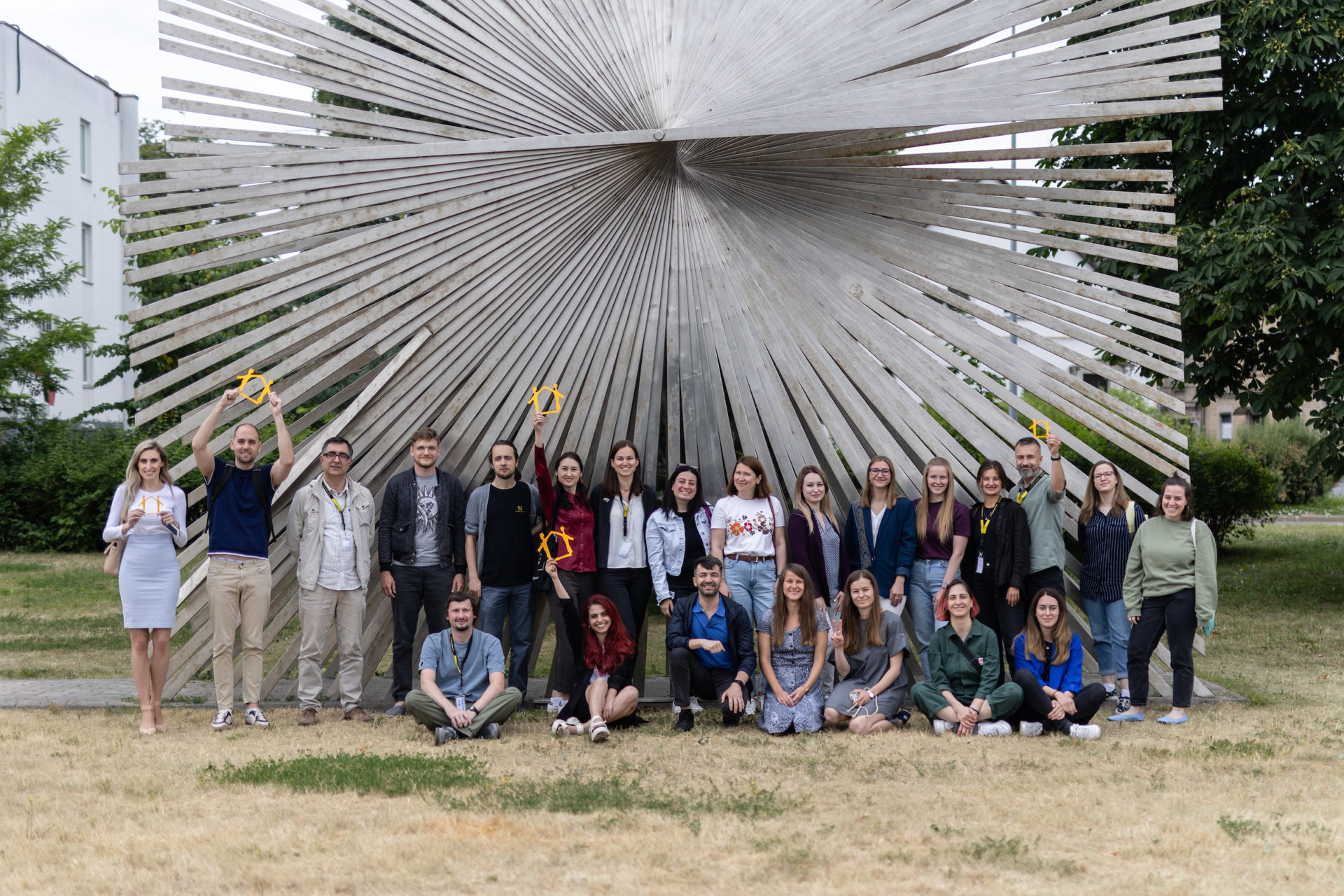It is heart-warming to see human rights defenders from the network of Human Rights Houses coming together, even in profoundly challenging times, to learn from each other, to show solidarity with each other, and to work together. While what brought us together was a desire to learn more about projects that lead to impact, the workshop helped gain new perspectives well beyond its main focus.
Daiva Petkevičiūtė, Human Rights House Foundation
Over the course of three days, the workshop’s participants representing 18 human rights and civil society organisations from Eastern Europe, Caucasus and Western Balkans, had the opportunity to focus on the theory and practice behind developing and implementing projects that aim for positive human rights impact.
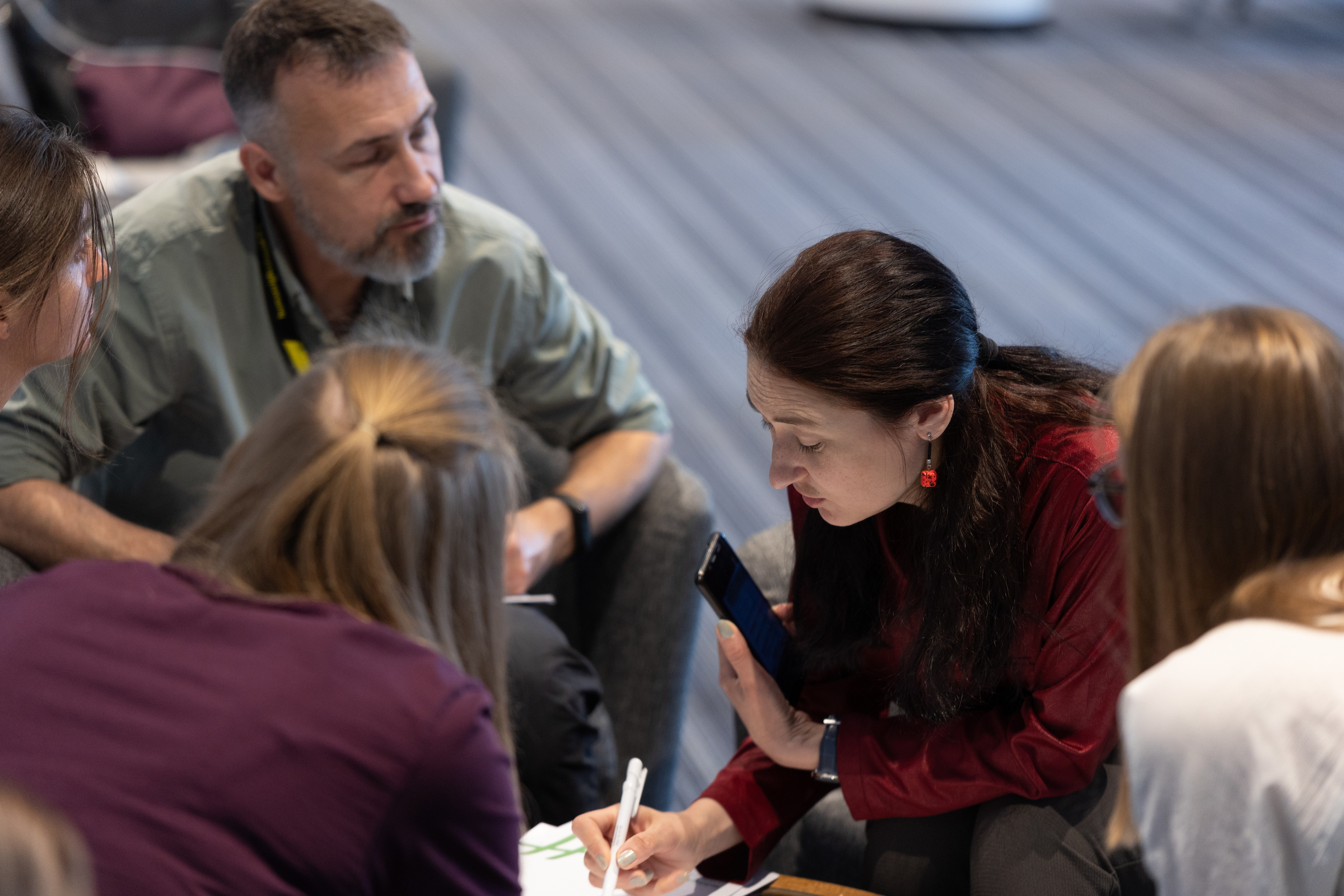
View and download photographs from the “From Idea to Impact” workshop here.
The interactive workshop helped the participants not only focus on building new skills but also allowed young professionals to connect with their peers from other countries. An online session with grant-making organisations provided an opportunity for the participants to hear the “dos and don’ts” of successful projects.
One of the results of the workshop was the feeling that we are in this together.
Nikita Grekowicz, Senior Specialist in international projects at the Helsinki Foundation for Human Rights.
Grekowicz says that he attended the workshop to gain a better understanding of donors’ perspectives on project applications, common systems for recording project results and building trust within the community.
Grekowicz shared that learning the difference between impact and outcome is particularly valuable for effective communication with citizens, who are primarily interested in understanding change. He highlighted the challenge of how human rights are perceived in Poland and how it affects public attention and engagement. “For many in Poland, the words ‘human rights’ are too distant… In that sense, it was important to hear that we cannot always envision how we can influence the impact [of a project], but at the same time we must keep it in mind as a reference point.”
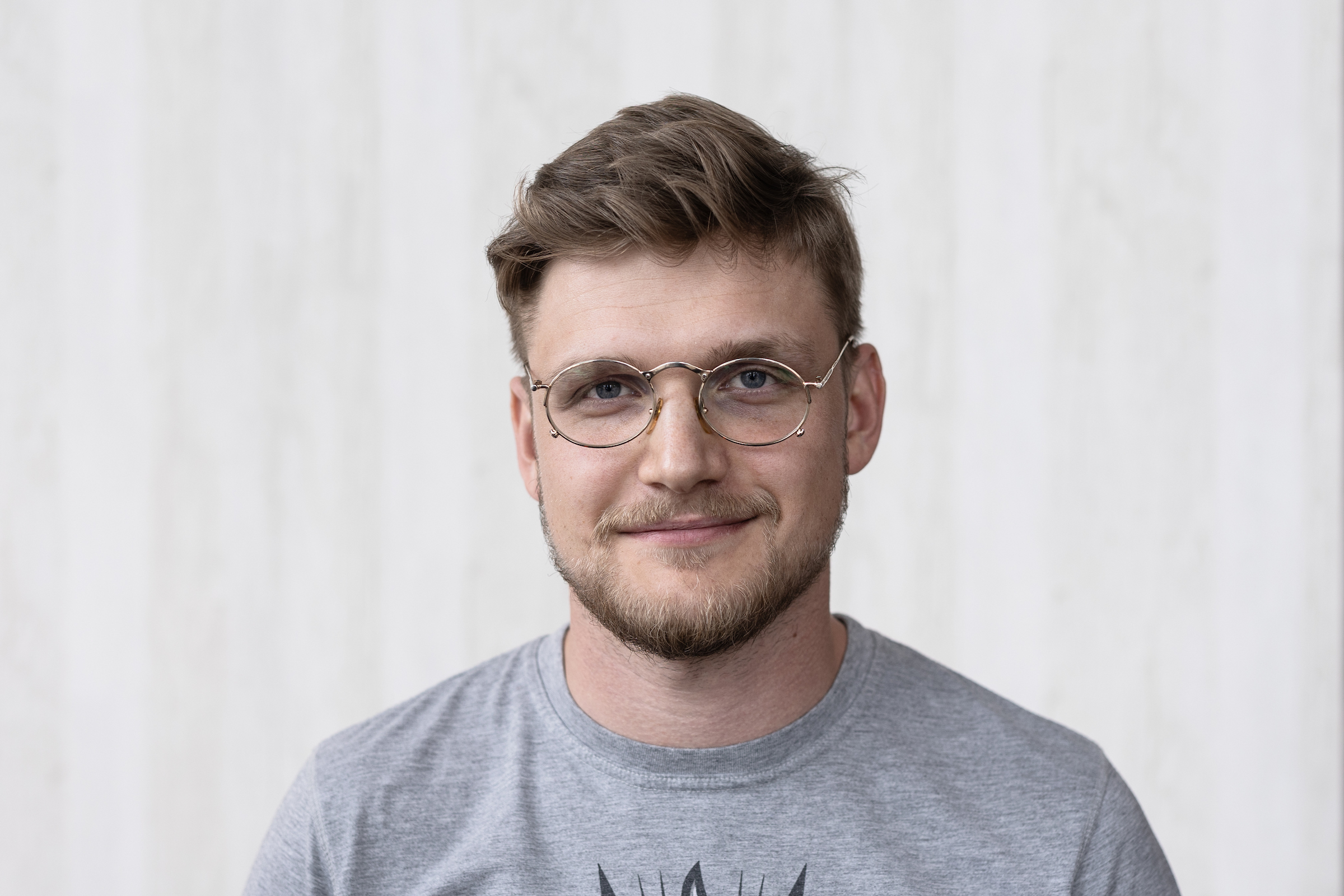
“The workshop gave me a strong impression that I should be even more grateful to my colleagues at the Helsinki Foundation for Human Rights for the work they do and at the same time, that one of my biggest flaws is also something I shouldn’t avoid but rather embrace – as it seems that without ‘dreaming big’ there is no ‘thinking big’.”
Making the transition from the business world to human rights
Working in the NGO sector with human rights projects – it is very different [to my former work in business]. In Business, you are paid for the service you provide so it’s easier to measure. Now, with so much work and resources invested, we want to have an impact and be able to explain it to others.
Suzana Obradovic, Legal Aid Associate at Transparency International Bosnia and Herzegovina, which is a founding member organisation of the newly-established Human Rights House Banja Luka.
This workshop really helped me through examples to better understand project proposals, writing reports and how to measure outcomes and impact – which was difficult for me to understand… To see the results [of our projects] sometimes takes a lot of time so it is very important to explain… why certain actions are taken and what effect they may have in the future,” continued Obradovic.
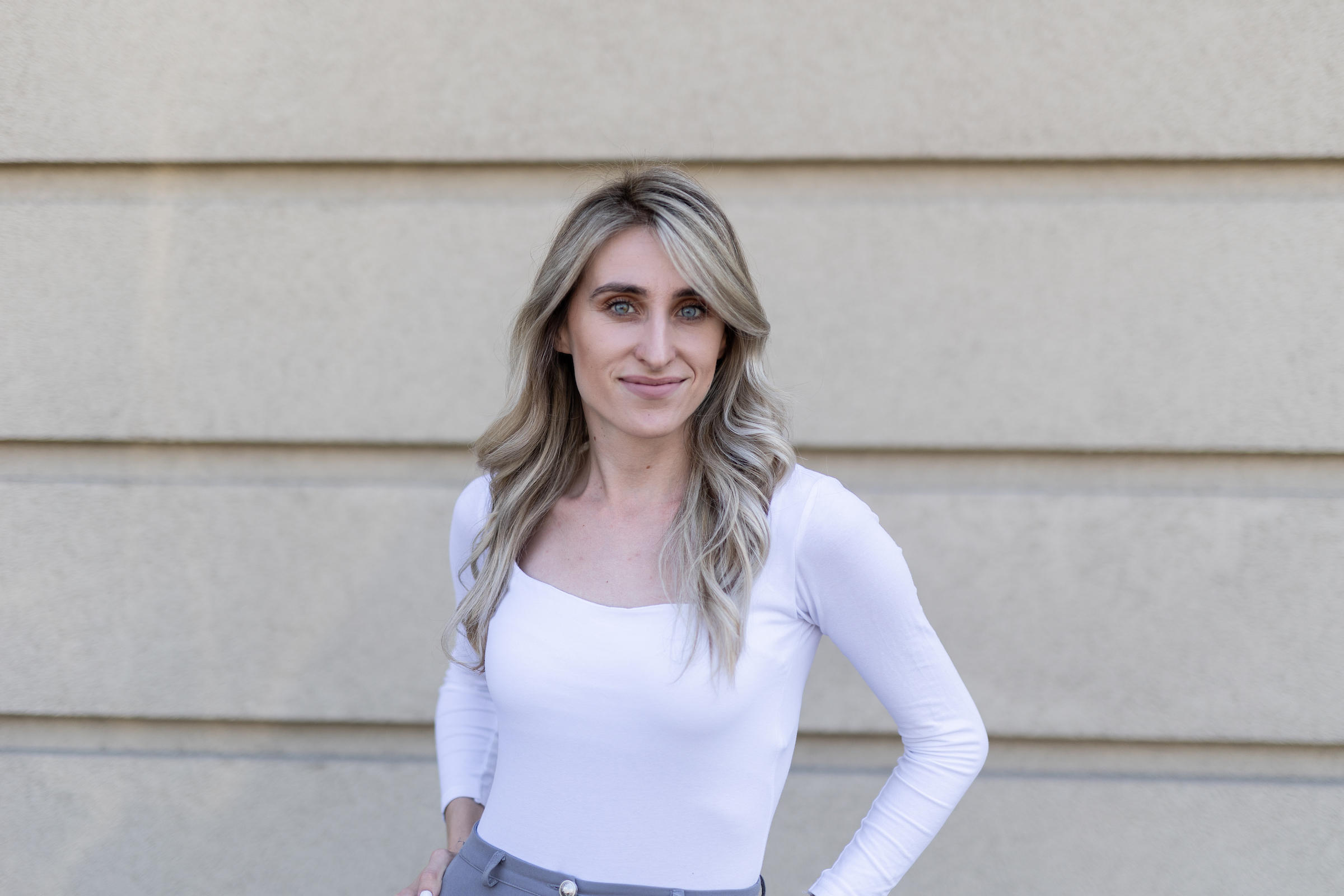
The workshop also provided Obradovic with an opportunity to connect with colleagues from countries facing increasingly hostile environments for human rights defenders. “I’m also grateful I had the opportunity to meet [and] to speak with [colleagues from those countries] in-person about the problems that they face and to understand better problems that we face,” said Obradovic referring to similarities between the recent legal initiatives of the authorities in Bosnia’s Republika Srpska and so-called “foreign agent” and “foreign influence” bills voted down in Georgia in March 2023.
Assessing risk
The alarming situation in Georgia has been a catalyst for a greater focus on risk assessment according to Natia Gvritishvili, a participant from Georgia, and Deputy Director at Sapari, a member organisation of Human Rights House Tbilisi.
We started to seriously work on risk assessment around a year ago with HRHF’s support, as we saw the political situation in Georgia was changing and we knew the experience of the Belarusian colleagues.
Natia Gvritishvili, Deputy Director at Sapari, a member organisation of Human Rights House Tbilisi.
Gvritishvili emphasised the importance of exchanging perspectives with colleagues from different countries and highlighted the challenges faced by human rights defenders in Georgia: “Even without the [so-called “foreign agent”]law adoption they, the government, the Prime Minister, are openly calling us [HRDs] spies and foreign agents, accusing us of being against our church, against religion, and our nation. And you can imagine the effect this can have in countries like Georgia.”
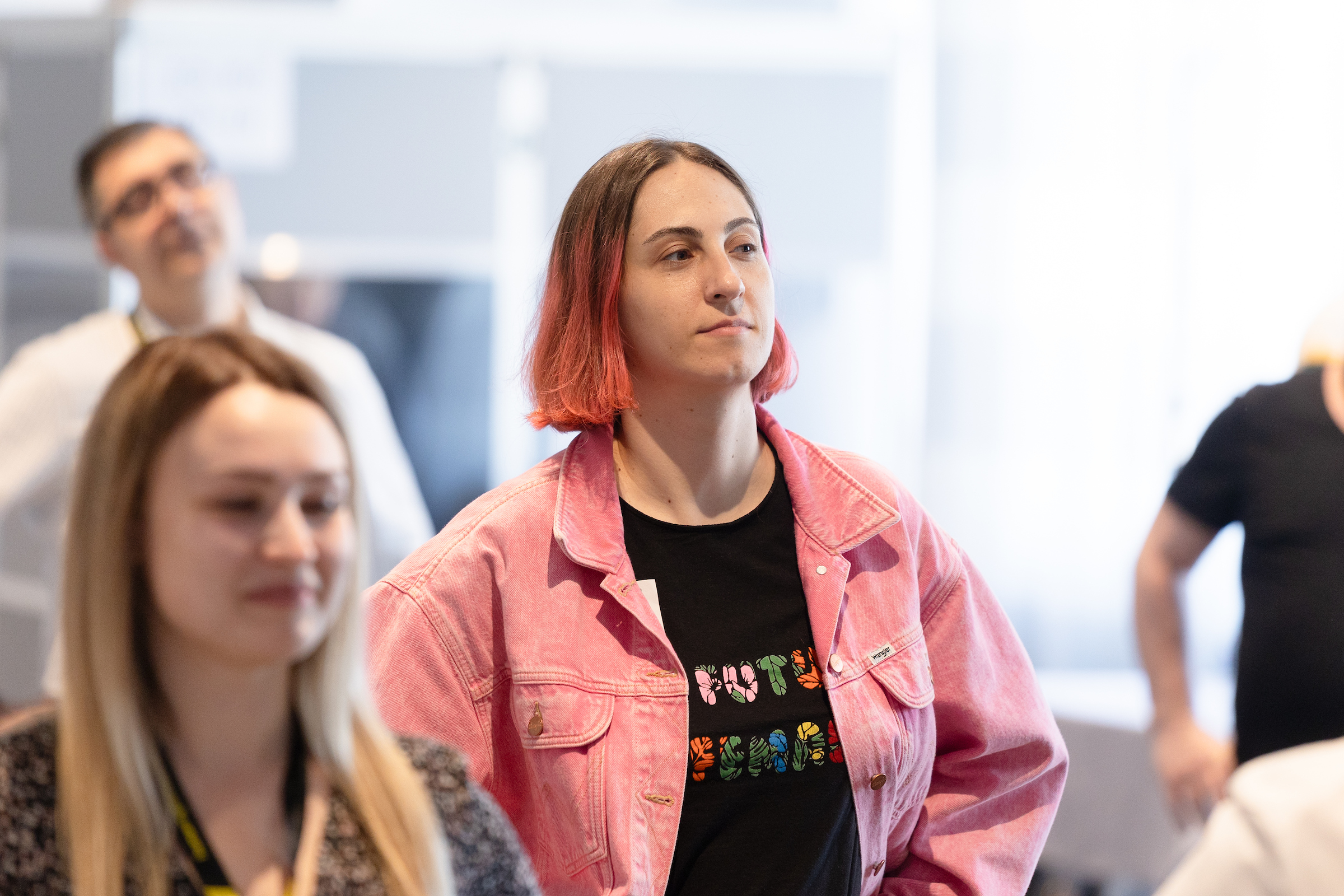
Gvritishvili shared that she felt it was important to meet colleagues from the Network during the workshop, to hear about the human rights challenges in their countries, and to participate in solidarity actions.
Solidarity with Belarus and Ukraine
The workshop provided a platform for participants to learn firsthand about the situations in different countries and express solidarity with colleagues in Belarus and Ukraine.
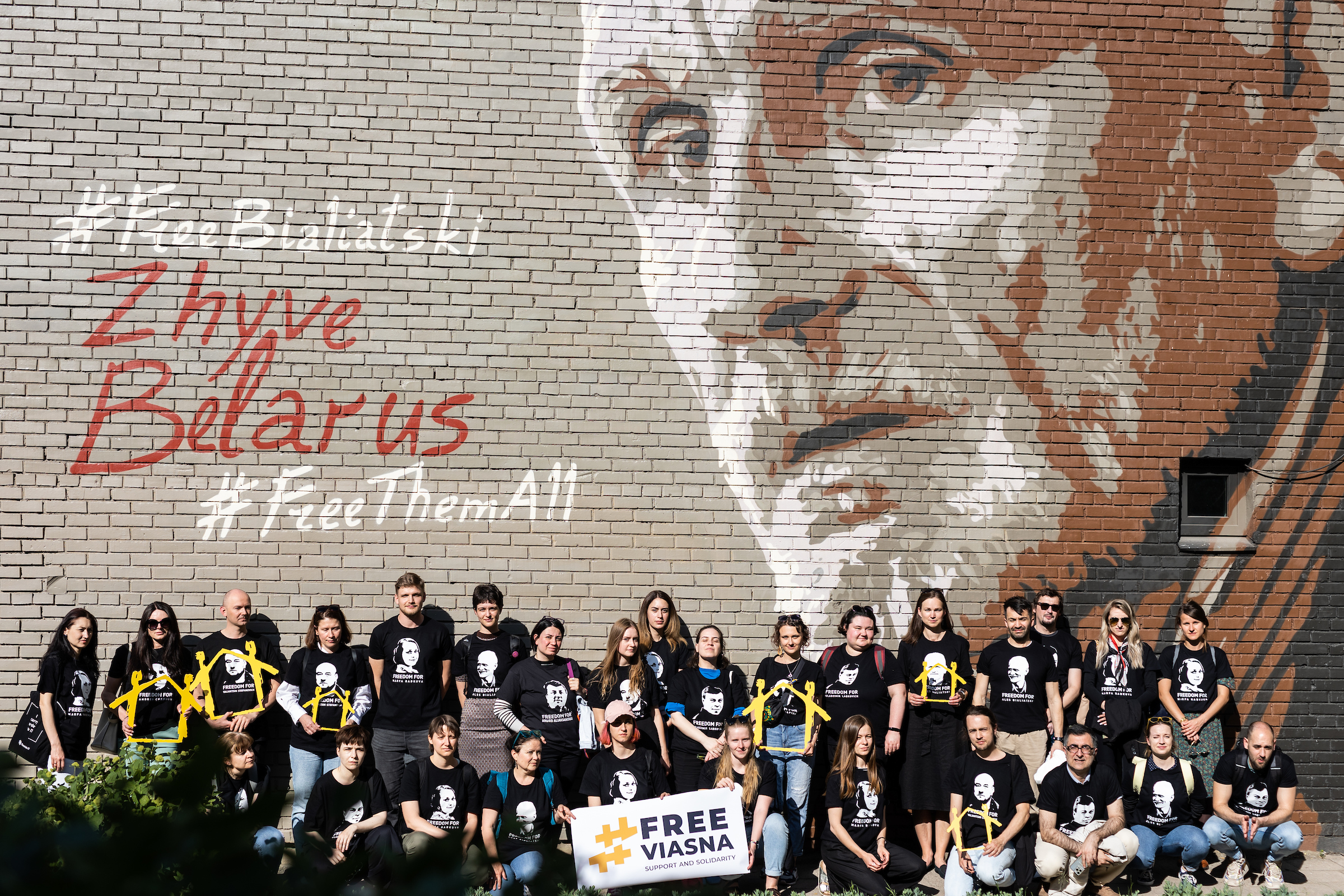
On 13 June, the workshop’s participants gathered outside of the Belarusian embassy in Vilnius to stand in solidarity with their imprisoned colleagues in Belarus. The solidarity action was organised by the Belarusian Human Rights House, Viasna, and HRHF.
Two days later, participants gathered once again to express solidarity with the people of Ukraine and their Ukrainian civil society colleagues in an action organised by Human Rights House Crimea, Educational Human Rights House Chernihiv, and HRHF. The action was timed to coincide with the hearing of the appeal in the case against Crimean journalist and human rights defender Iryna Danylovych who is detained by the de-facto authorities in occupied Crimea.
Ukrainian participant Kateryna Petrova gave insight into how the full-scale Russian invasion of Ukraine has affected civil society in the country: “Non-stop work in the current conditions, sleepless nights. You don’t go to sleep in the morning after a sleepless night because of shellings – you must work – this affects us.”
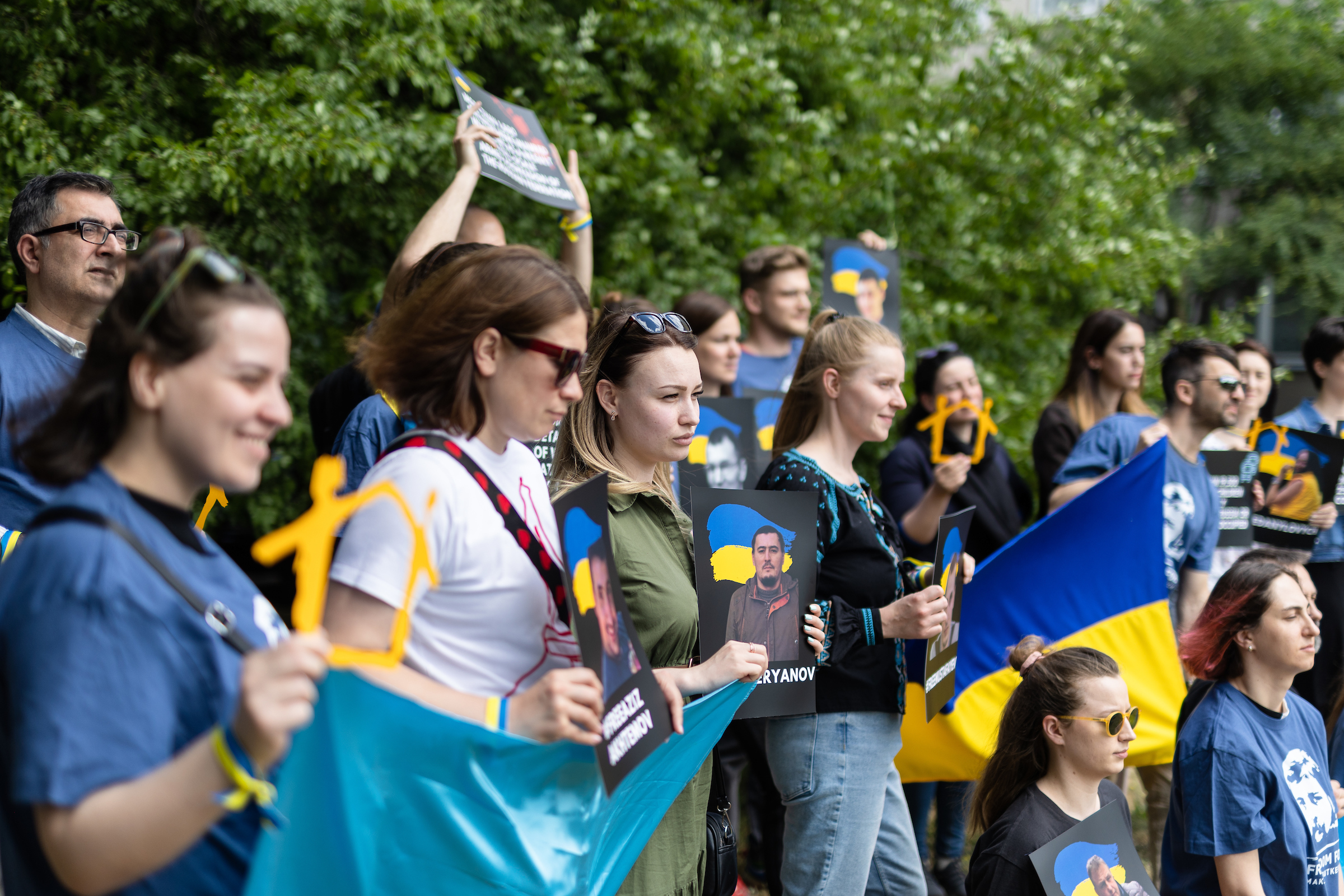
Petrova, the acting Head of the Regional Center for Human Rights and a Board member of the Human Rights House Crimea, also highlighted that workshops like this are important to Ukrainian civil society given the shortage of staff with professional knowledge in project design and management as a result of the full-scale invasion: “a big part of the NGO sector went to the frontlines, some shifted to the governmental service, which also has been experiencing similar issues, and a huge part of [Ukraine’s] specialists moved out of the country because of the war.”
Petrova emphasised that the workshop was a place to reconnect with colleagues and to meet new ones: “To feel you are not alone and being supported, that you have someone to rely on, it was an opportunity to switch a bit to allow some new ideas.”
Strengthening new partnerships
The workshop provided the chance for many of the participants to meet colleagues from the Network of Human Rights Houses for the first time. This was particularly significant for participants from the Western Balkans, as Human Rights Houses Zagreb, Belgrade and Banja Luka have recently launched a new HRHF-supported project aimed at a comprehensive study of the situation faced by civil society in the region.
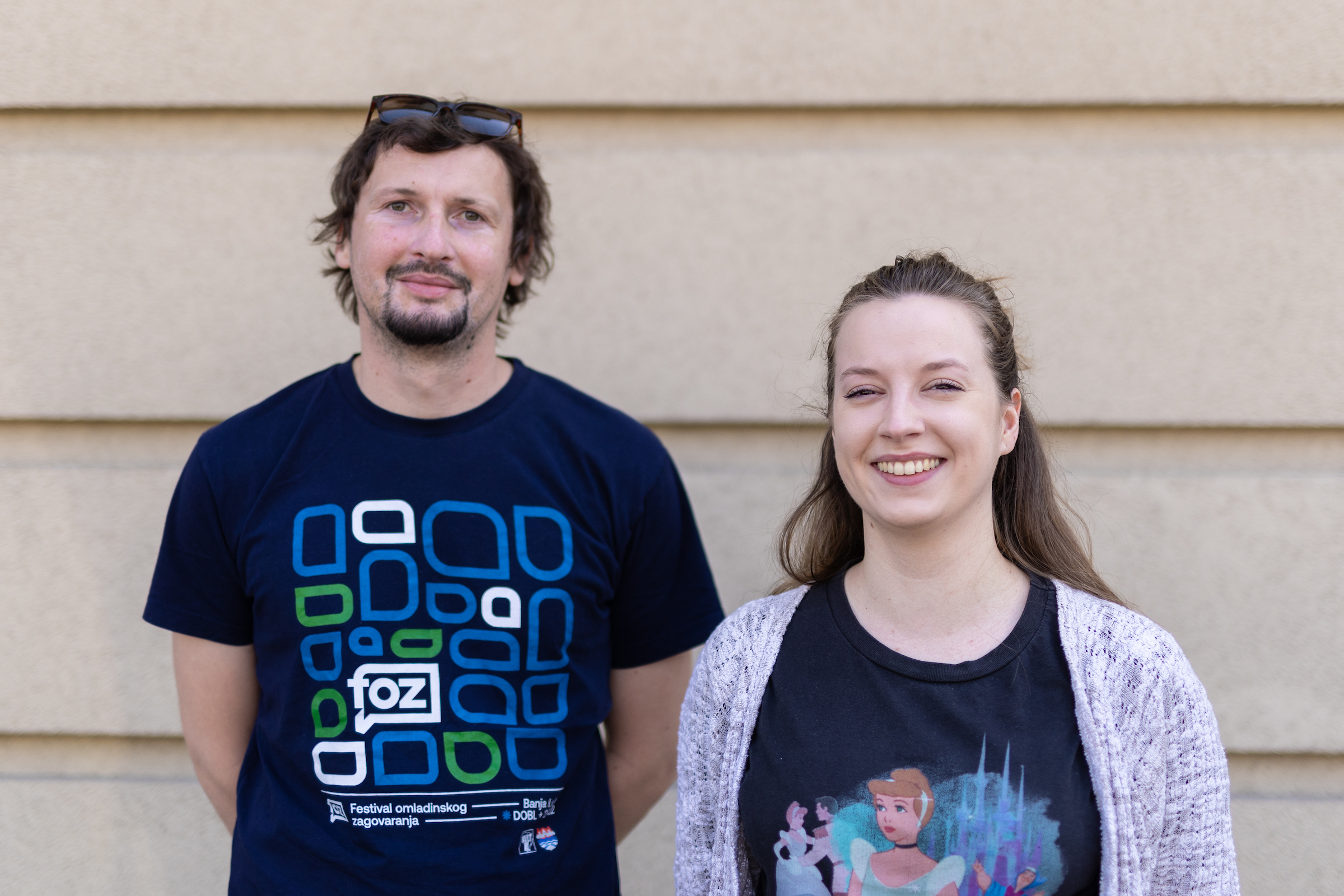
“It was great to meet colleagues from the region – even though we come from neighbouring countries, we do not get a lot of chances to work together. Everyone is wrapped up in their own projects and sometimes it is very good to connect regionally and see what are the differences and sometimes get to know that there are not that many,” says Sara Sinčić from Human Rights House Zagreb. She is convinced that regional cooperation of civil society benefits regional development.
Her colleague from Human Rights House Banja Luka, Branislav Ristić, adds: “This connection of civil society is so important. If you don’t have a network of civil society across borders, then it’s hard to build a realistic picture of what is going on. If you are connecting and researching the same topic, the findings of both of our reports are matching – this is proof”.
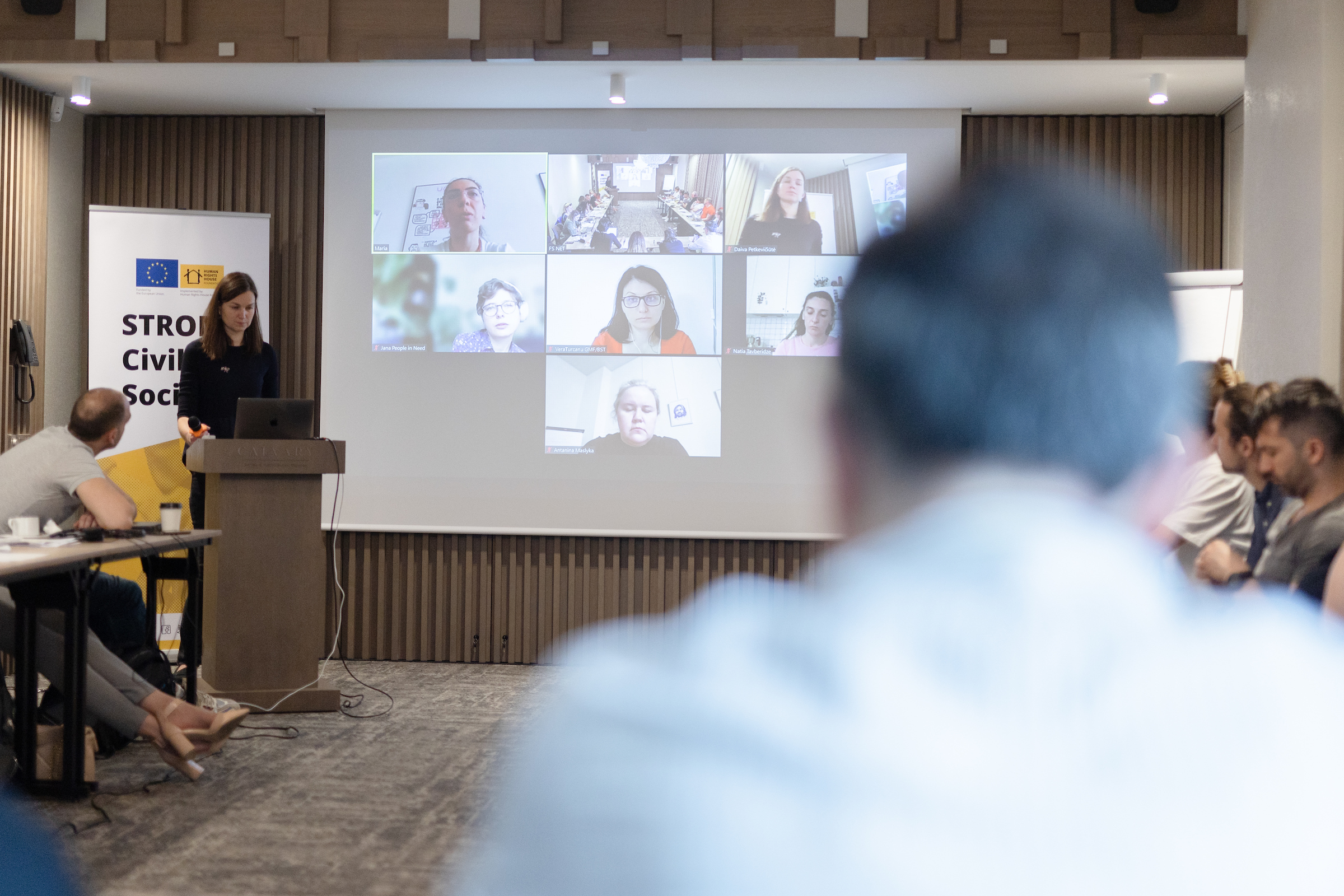
The workshop was organised by Human Rights House Foundation under the framework of STRONG Civil Society, and was implemented with the financial support of the Norwegian Ministry of Foreign Affairs and the European Union.




